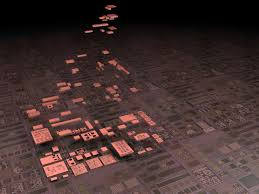
Breaking News
 Alex Jones & Steve Bannon Warn, The ANTIFA-Sponsored Murder Of Charlie Kirk...
Alex Jones & Steve Bannon Warn, The ANTIFA-Sponsored Murder Of Charlie Kirk...
 Here's that fast vid President Trump posted, hinting at what he is about to do
Here's that fast vid President Trump posted, hinting at what he is about to do
 The 2 Billion View Video: Charlie Kirk's Most Viewed Clips of 2024
The 2 Billion View Video: Charlie Kirk's Most Viewed Clips of 2024
 Conservatives Are Being Targeted – Louder with Crowder CEO Warns / Redacted
Conservatives Are Being Targeted – Louder with Crowder CEO Warns / Redacted
Top Tech News
 Tesla Megapack Keynote LIVE - TESLA is Making Transformers !!
Tesla Megapack Keynote LIVE - TESLA is Making Transformers !!
 Methylene chloride (CH2Cl?) and acetone (C?H?O) create a powerful paint remover...
Methylene chloride (CH2Cl?) and acetone (C?H?O) create a powerful paint remover...
 Engineer Builds His Own X-Ray After Hospital Charges Him $69K
Engineer Builds His Own X-Ray After Hospital Charges Him $69K
 Researchers create 2D nanomaterials with up to nine metals for extreme conditions
Researchers create 2D nanomaterials with up to nine metals for extreme conditions
 The Evolution of Electric Motors: From Bulky to Lightweight, Efficient Powerhouses
The Evolution of Electric Motors: From Bulky to Lightweight, Efficient Powerhouses
 3D-Printing 'Glue Gun' Can Repair Bone Fractures During Surgery Filling-in the Gaps Around..
3D-Printing 'Glue Gun' Can Repair Bone Fractures During Surgery Filling-in the Gaps Around..
 Kevlar-like EV battery material dissolves after use to recycle itself
Kevlar-like EV battery material dissolves after use to recycle itself
 Laser connects plane and satellite in breakthrough air-to-space link
Laser connects plane and satellite in breakthrough air-to-space link
 Lucid Motors' World-Leading Electric Powertrain Breakdown with Emad Dlala and Eric Bach
Lucid Motors' World-Leading Electric Powertrain Breakdown with Emad Dlala and Eric Bach
 Murder, UFOs & Antigravity Tech -- What's Really Happening at Huntsville, Alabama's Space Po
Murder, UFOs & Antigravity Tech -- What's Really Happening at Huntsville, Alabama's Space Po
DARPA leading electronics revolution to go beyond printed circuit boards with modular chiplets

The CHIPS program is part of DARPA's much larger effort, the Electronics Resurgence Initiative, in which we are striving to build an electronics community that mixes the best of the commercial and defense capabilities for national defense," Chappell said.
"If the CHIPS program is successful, we will gain access to a wider variety of specialized blocks that we will be able to integrate into our systems more easily and with lower costs," said Green. "This should be a win for both the commercial and defense sectors."
Among the specific technologies that could emerge from this newly formed research community are compact replacements for entire circuit boards, ultrawideband radio frequency (RF) systems, which require tight integration of fast data converters with powerful processing functions, and, by combining chiplets that provide different accelerator and processor functions, fast-learning systems for teasing out interesting and actionable data from much larger volumes of mundane data. "By bringing the best design capabilities, reconfigurable circuit fabrics, and accelerators from the commercial domain, we should be able to create defense systems just by adding smaller specialized chiplets," said Bill Chappell, director of DARPA's Microsystems Technology Office.



